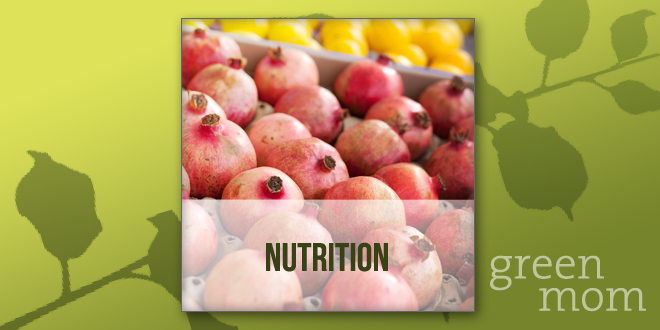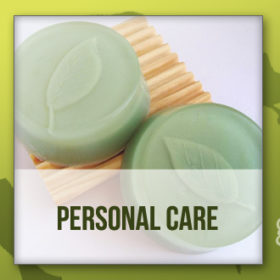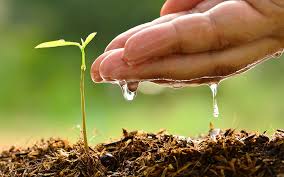By Asha Kreiling
Although I love the aroma and flavor of coffee, I stopped drinking it because it upset my stomach, gave me headaches, and made me jittery and a little bit addicted. Then I discovered yerba mate and fell in love. I like the drink primarily for its robust taste and its stimulating properties that energize me without the jitters, but yerba mate is said to have a number of other medicinal properties and health benefits that make it increasingly popular in North America.
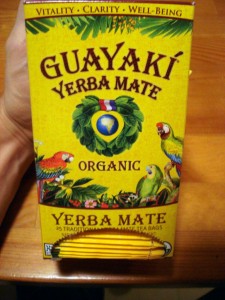 Yerba mate is a tree species, part of the holly genus in the Aquifoliaceae plant family. It is indigenous to subtropical highlands of South American countries
Yerba mate is a tree species, part of the holly genus in the Aquifoliaceae plant family. It is indigenous to subtropical highlands of South American countries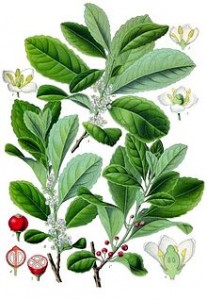 Uruguay, Paraguay, Argentina, and Brazil. “Yerba” means herb in Spanish, even though yerba mate is a small tree, not an herbaceous plant. “Mate” refers to the dried leaves as well as the cup used to drink the beverage. Traditionally, drinking yerba mate is a common social and ceremonial practice. Dried leaves and stems are steeped in a mate, a hollow gourd; and a metal filtering straw, called a bombilla, is used to sip the beverage. Unlike tea, yerba mate leaves are shared among friends until they lose flavor by repeatedly pouring hot water over them. A cebador/a, the mate server, will prepare the drink for a group of friends, refilling the gourd with water as it is passed to each person. Since I don’t own a gourd or a bombilla, a french press works just fine.
Uruguay, Paraguay, Argentina, and Brazil. “Yerba” means herb in Spanish, even though yerba mate is a small tree, not an herbaceous plant. “Mate” refers to the dried leaves as well as the cup used to drink the beverage. Traditionally, drinking yerba mate is a common social and ceremonial practice. Dried leaves and stems are steeped in a mate, a hollow gourd; and a metal filtering straw, called a bombilla, is used to sip the beverage. Unlike tea, yerba mate leaves are shared among friends until they lose flavor by repeatedly pouring hot water over them. A cebador/a, the mate server, will prepare the drink for a group of friends, refilling the gourd with water as it is passed to each person. Since I don’t own a gourd or a bombilla, a french press works just fine.
Yerba mate drink contains various vitamins and minerals including A, C, E, B vitamins, calcium, manganese, iron, selenium, potassium, magnesium, phosphorus, and zinc. Studies have shown that it contains more antioxidants and polyphenols (which have been found to assist in disease prevention) than green tea and other tea drinks. Read more here
While most yerba mate product packaging will list caffeine in its nutritional content, some research has shown that the drink actually contains another similar xanthine, called mateine, which stimulates the central nervous system without the crash or addictive properties that coffee exhibits.
Yerba mate is also a mild diuretic, helping the digestive system to function more efficiently. It stimulates increased production of bile and other gastric acids, thus promoting cleansing waste elimination. Yerba mate boosts energy and metabolism, therefore helping to maintain or lose weight.
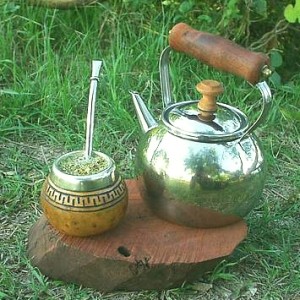 There has been recent controversy over yerba mate and its association with cancer risks, but studies remain inconclusive. Click here to read a scientific study Much of the concern is over the Polycyclic Aromatic Hydrocarbons (PAHs) content in most smoke-dried yerba mate. PAHs are chemicals present in the environment and are carcinogenic at high concentrations. Many smoked or roasted foods and beverages such as fish, meat, tea and coffee found in the normal American diet contain small amounts of PAHs. Most yerba mate brands, like Guayaki and ECO TEAS, found in stores sell air-dried, unsmoked yerba mate which have significantly lower levels of PAHs than traditional smoke-dried versions. Researchers and manufacturers assure that drinking yerba mate will not expose you to any PAH levels above what is found in a normal diet and should not cause concern.
There has been recent controversy over yerba mate and its association with cancer risks, but studies remain inconclusive. Click here to read a scientific study Much of the concern is over the Polycyclic Aromatic Hydrocarbons (PAHs) content in most smoke-dried yerba mate. PAHs are chemicals present in the environment and are carcinogenic at high concentrations. Many smoked or roasted foods and beverages such as fish, meat, tea and coffee found in the normal American diet contain small amounts of PAHs. Most yerba mate brands, like Guayaki and ECO TEAS, found in stores sell air-dried, unsmoked yerba mate which have significantly lower levels of PAHs than traditional smoke-dried versions. Researchers and manufacturers assure that drinking yerba mate will not expose you to any PAH levels above what is found in a normal diet and should not cause concern.


